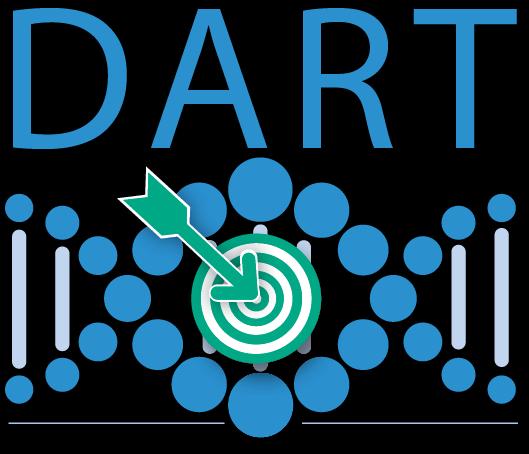
Credit: SWOG Cancer Research Network
Many patients with rare, fast-growing neuroendocrine tumors respond well to a common immunotherapy drug combination, according to the first peer-reviewed publication out of DART, short for Dual Anti-CTLA-4 and Anti-PD-1 Blockade in Rare Tumors, a unique rare cancer clinical trial.
DART offers the immunotherapy combination of ipilimumab and nivolumab to patients with 53 classes of rare cancers through an innovative “basket” design, which allows a single drug or drug combination to be tested in a variety of tumor types. The trial has rapidly expanded the opportunities for immunotherapy drug development in rare cancers, which make up almost a quarter of all cancers diagnosed worldwide.
DART is managed by SWOG Cancer Research Network, a clinical trials group that is part of the National Cancer Institute’s (NCI) National Clinical Trials Network (NCTN), the oldest and largest publicly-funded cancer research network in the U.S.
The study results appear in Clinical Cancer Research. When presented in March 2019 at the annual meeting of the American Association of Cancer Research, initial findings were met with excitement. That’s because patients with high-grade, or fast-growing, neuroendocrine carcinoma have few treatment options.
“We’re very encouraged by these results,” said Sandip Pravin Patel, MD, the DART clinical study chair, an associate professor of medicine at the University of California at San Diego School of Medicine, and a medical oncologist with Moores Cancer Center at UC San Diego Health. “Based on the response, we opened another study enrolling only patients with high-grade neuroendocrine carcinoma to see if we can replicate our results. We’re eager to share those findings later this year.”
Patel’s fellow DART chairs are Razelle Kurzrock, MD, of UCSD Moores Cancer Center and Young Kwang Chae, MD, PhD, of Northwestern University.
For this neuroendocrine cohort, 32 eligible patients received the ipilimumab and nivolumab combination. Of the 32, 18 had high-grade cancer, with tumors most commonly appearing in the lungs or gastrointestinal tract. Regardless of where their tumors appeared, eight out of 18 high-grade patients – or 44 percent – saw them shrink partially or completely. By contrast, patients with intermediate or low-grade tumors saw no response.
Since its 2017 launch, physicians at 823 cancer centers, academic medical centers, and community clinics and hospitals have opened DART. As of February 13, 715 patients have enrolled out of a goal of 818 – beating all expectations. Historically, rare cancer trials struggle to find patients, leading many investigators to abandon rare cancer research.
###
Currently, the trial is enrolling patients with 12 different cancer types. For information, call the NCI’s Cancer Information Service at 1-800-4-CANCER and ask about DART or S1609. More information about the trial, under NCT number NCT02834013, can be found at clinicaltrials.gov.
DART is funded by the National Institutes of Health through NCI grant awards CA180888, CA180819, CA180821, and CA180820 and in part by Bristol-Myers Squibb.
Patel is first author of the Clinical Cancer Research article, and Patel, Chae and Kurzrock all serve as corresponding authors. Other authors include: Megan Othus, PhD, of SWOG and Fred Hutchinson Cancer Research Center; Francis Giles, MD, formerly of Northwestern University and now at NEOMED Therapeutics; Donna Hansel, MD, of UCSD Moores Cancer Center; Preet Singh, MD, of Springfield Clinic; Annette Fontaine, MD, of New Mexico Cancer Center; Manisha Shah, MD, of The Ohio State University Comprehensive Cancer Center; Anup Kasi, MD, MPH, of the University of Kansas Cancer Center; Tareq Al Baghdadi, MD, of IHA Hematology Oncology at St. Joe’s Ann Arbor; Sreekanth Vasireddy, M.D. of Ochsner Health System; Zoran Gatalica, MD, DSc, of Caris Life Sciences; W. Michael Korn, MD, of Caris Life Sciences and the UCSF Helen Diller Family Comprehensive Cancer Center; Jourdain Hayward of the SWOG Statistics and Data Management Center; Christine McLeod of the SWOG Statistics and Data Management Center; Helen X. Chen, MD, of the National Cancer Institute; Elad Sharon, MD, of the National Cancer Institute; Edward Mayerson, MS, of the SWOG Statistics and Data Management Center; Christopher Ryan, MD, of Oregon Health & Science University; Melissa Plets, MS, of the SWOG Statistics and Data Management Center; and Charles D. Blanke, MD, of the SWOG Group Chair’s Office.
SWOG Cancer Research Network is part of the National Cancer Institute’s National Clinical Trials Network and the NCI Community Oncology Research Program, and is part of the oldest and largest publicly-funded cancer research network in the nation. SWOG has nearly 12,000 members in 47 states and six foreign countries who design and conduct clinical trials to improve the lives of people with cancer. SWOG trials have led to the approval of 14 cancer drugs, changed more than 100 standards of cancer care, and saved more than 3 million years of human life. Learn more at swog.org.
Media Contact
Wendy Lawton
[email protected]
503-348-8675
Related Journal Article
http://dx.




